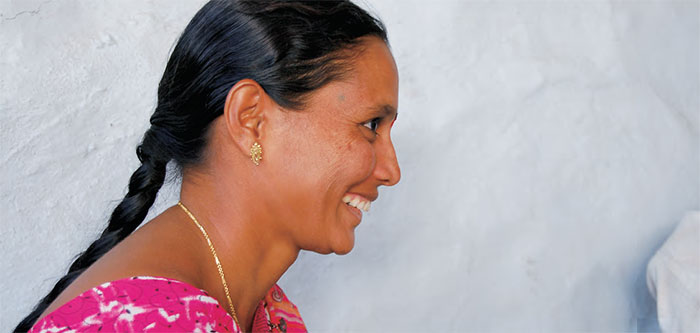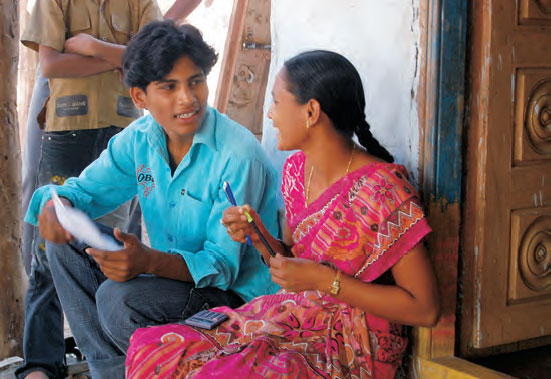Female Empowerment | Sarala Pottee

Profile: Sarale Pottee
Sarale is 31 years old and has been a farmer in the Wankidi district in the Adilabad region of Andhra Pradesh for five years. She joined Zameen three years ago and lives with her brother and 15 year old son.
Background
Women are increasingly working the land as their husbands migrate to the cities to find work, leaving them to take care of the family home as well as the farm. Female farmers are somewhat of an invisible statistic, some experts estimating that up to 85% of women in rural India are working on farms.
Not only do women have the same problems associated with smallholder farming as men – poor access to credit and services, inadequate infrastructure and limited market access – they also have constraints that specifically affect women. In addition to the strenuous manual labour involved with farming, women must combine this work with their domestic duties. They do not have the ability to own property, which leads to greater difficulty in accessing credit, labour, extension services and subsidised inputs.
Despite their growing number, female farmers remain disenfranchised. A key reason for their disempowerment is their lack of representation in producer organisations. Their voices may be heard at the grassroots level, but they are rarely represented within the senior management.
The epidemic of farmer suicides in the region has left many landless widows to care for their families unsupported. Lacking respect from the community and facing seemingly insurmountable obstacles, the plight of rural women is worse still than the terrible difficulties faced by male farmers.
Sarale’s Story
Sarale had to give up her education at the age of 15 when she married a local farmer. She had a son and remained a housewife for eleven years, unable to further her studies or seek employment. After the death of her husband and remarriage, Sarale returned to school and joined the Velugu Project or Indira Kranti Patham (IKP), a community action group campaigning for better livelihoods for the rural poor.
She played a key role in farming self-help groups, assisting farmers with getting access to credit, marketing their crops and developing their businesses.
As a local activist campaigning for farmers, she soon became aware of the inspiring work being done by Zameen in the region. As a farmer working her brother’s land, she joined Zameen and progressed rapidly, her dynamism and aptitude for mobilising farmers taking her to the very top. She quickly rose from a group leader of 20 farmers to becoming the first female president of the Producer Executive Body (PEB), which oversees the entire cooperative of 4,500 farmers.
“I liked Zameen’s motto of helping the farming community, it spoke to me. It has been difficult to gain respect from the men, but Zameen has helped me to learn new skills and I know I have the right to hold office with Fairtrade. It shows the men that women can do anything just the same as men. Now I want to do more, I want to help other women.”
She is currently an Extension Officer where she is being trained in organisational and institutional development. She is gaining skills and knowledge about the technical aspects of certification and helping to communicate better farming practices and technological developments to the farming community.
She remains highly ambitious and wants to expand Zameen to widen its impact and learn computer skills to help her manage the farmer groups.
Sarale is currently in charge of a cluster in Wankidi, managing 24 farmer groups constituting 323 farmers.

